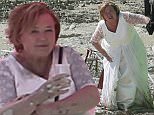Health notes: Live music strikes a chord

I adore Christmas music, so from 1 December every year, I drive – and sing along – to the sound of carols from King’s College Chapel and The Messiah. Even battling through rain and wind to feed my horses on a dark winter’s morning, belting out the ‘Hallelujah Chorus’ lifts my mood. Music, singing and dance are natural to us: ‘All animal movement is rhythmic, and humans have that special sense of rhythm we call “musicality”,’ says Professor Colwyn Trevarthen, co-author of Communicative Musicality. As well as being a source of joy, musicality is also proving at least as effective as conventional treatment in helping a range of problems.
Last Christmas, I wrote about the transformative effect of Singing for the Brain groups for elderly people with dementia (alzheimers.org.uk). This year, I want to tell you about a marvellous charity called Live Music Now (LMN). Set up in 1977 by the late violinist Yehudi Menuhin and businessman Ian Stoutzker (who was also a music student),
LMN sends talented young musicians to perform in community settings – special schools, prisons, hospitals, village halls, care homes and community centres – to people who wouldn’t usually have the chance to experience and be involved in live performance. LMN now stretches nationwide with over 3,000 performances and workshops given annually to some 200,000 people of all ages. At Millwood Primary Special School in Bury, where half the pupils are autistic and others have complex
medical needs, ‘Something miraculous happens with music and the children,’ according to assistant head teacher Jill Tierney.
For the past five years, LMN has organised funding for musician Katie Rimmer to work with children, both one-to-one and in small groups. Sophie, aged nine, is autistic and never used to talk in order to communicate. ‘She was just locked away in her little world, parroting things she heard on TV,’ explains Jill. After a couple
of sessions with Katie, Sophie started playing the tambourine and drum. Then came what Jill describes as a ‘magical moment’ – Sophie started ‘speaking back’ to Katie. ‘If Katie paused when she’d normally have played the drum, Sophie would say “bang, bang, bang”. She is now using single words to communicate, which was all born from a musical beginning.’
Jill showed another little girl with horrific brain injuries how she could ‘conduct’ as Jill played the guitar. ‘Apart from tracking with her eyes, she had virtually no movement. But I told her the same as the mainstream children: “When you want me to stop show me a sign, and the same for go.” To our amazement, she lifted her whole hand very slowly to sign stop – I stopped and then she lowered it and I started again. The first time, we thought it was a fluke, but she did it three or four times. Sometimes we wonder why we’re doing all these things with these children, but then there’s a moment like that – and you know.
‘Music is a phenomenal way of opening up very disabled children. We make so many assumptions about what they can’t do, but with music they take things in, they learn. It’s a universal language, and it gives children a chance to excel when everything else is so difficult.’
Jill Tierney has never observed the same effects with the children listening passively to recorded music. According to Dr Nicholas Bannan of the University of Western Australia, ‘Children seek reasons for things happening, so [live music] is meaningful in a way that a disembodied voice or notes on a recording cannot be. Autistic children in particular need the reassurance of seeing and hearing where the music comes from.’ And, he explains, ‘Children’s responses to live music are multi-sensory, both in terms of perception – touch, movement, smell and visual cues, as well as hearing
– and reaction through facial expression, movement and oral participation.’
Adds Professor Colwyn Trevarthen, ‘The key is what’s called “intense participation” – being creative together and really enjoying it. Children learn by sharing in others’ thoughts and feelings.’ And as Ian Stoutzker, founder chairman of LMN, says: ‘Music is what feelings sound like.’
Live Music Now, tel: 020 7014 2828; livemusicnow.org
THE FOUR WISE WEBSITES
Over Christmas, it’s useful to know your GP cover, local hospital with A&E and nearest pharmacy’s opening times. For immediate queries visit NHS Direct, nhsdirect.nhs.uk, tel: 0845 4647. Do read through the First Aid Advice section on the St John Ambulance website (sja.org.uk). If you don’t have a good first-aid kit, the Bupa website has comprehensive information on what they should contain (go to bupa.co.uk and search for first aid kit). The Royal Society for the Prevention of Accidents (rospa.com) has useful tips on Christmas safety.
Website of the week: tommys.org
Visit this site for pregnancy information and details of Tommy’s free PregnancyLine where you can call a Tommy’s midwife for expert advice, or support for a pregnancy loss. The service is open Monday to Friday, 9am-5pm, tel: 0800 014 7800.























































































































































































































































































































































